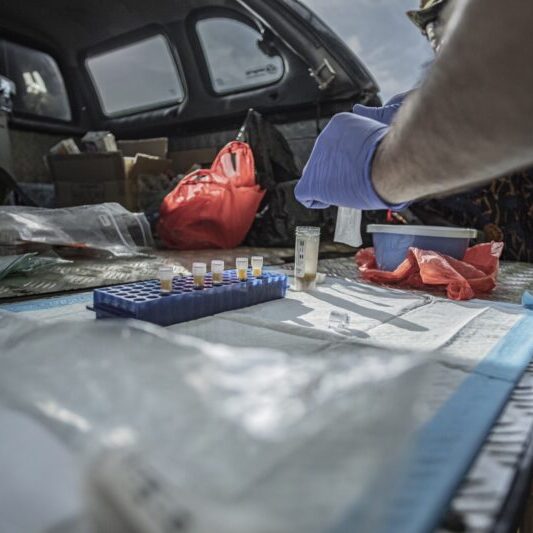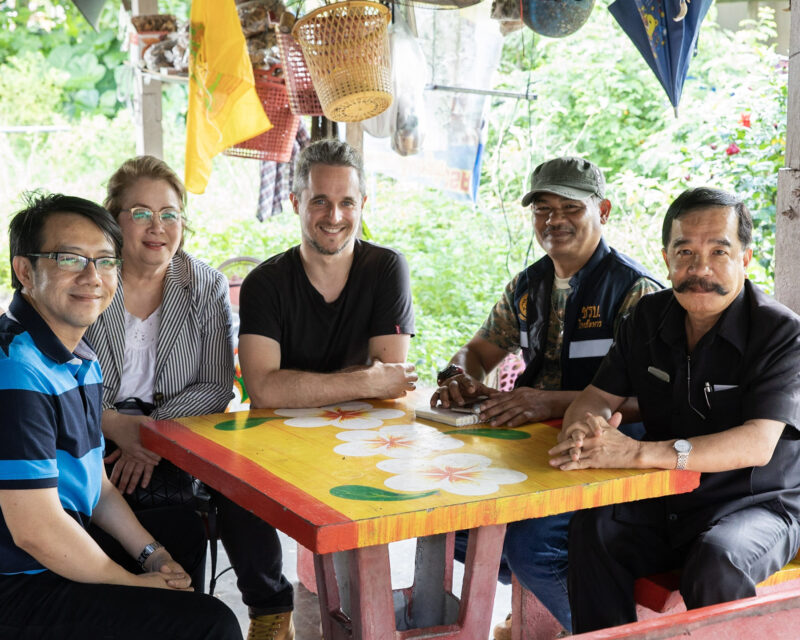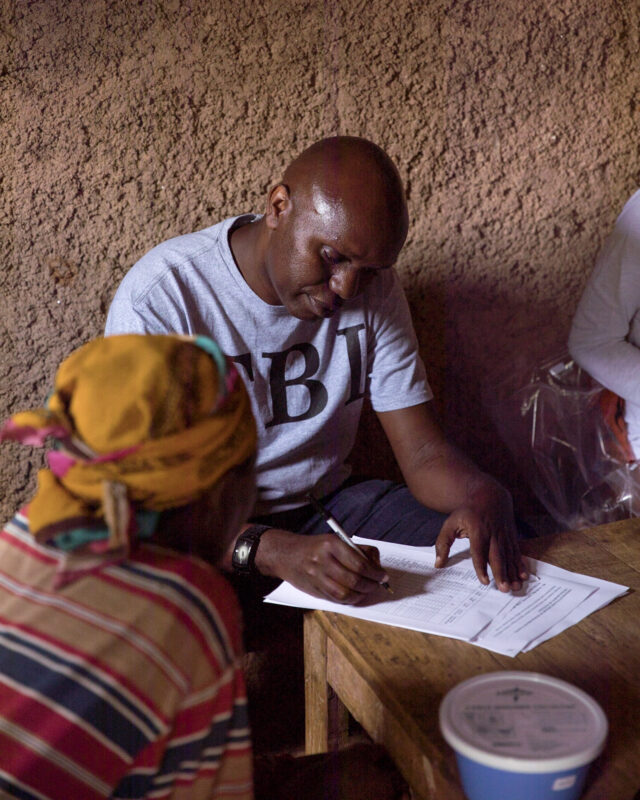
Photo Credit: Stool Photo Credit: GMbC team processing stool samples in an improvised laboratory by a Bedik village in southeastern Senegal. ©Global Microbiome Conservancy / Photo by F. Rondon
Frequently Asked Questions
Learn more about the Global Microbiome Conservancy (GMbC ) program, including our mission and approach to collaborations.
About the GMbC Program

Photo Credit: GMbC co-founder Mathieu Groussin and consortium members meeting local community leaders
(Varocha and Ratha-korn) in Thailand. ©Global Microbiome Conservancy / Photo by C. Corzett
Our Approach to Collaborations

Photo Credit: Local GMbC consortium member John Rusine, filling out a dietary questionnaire with a participant. Village in west Rwanda. ©Global Microbiome Conservancy / Photo by C. Corzett